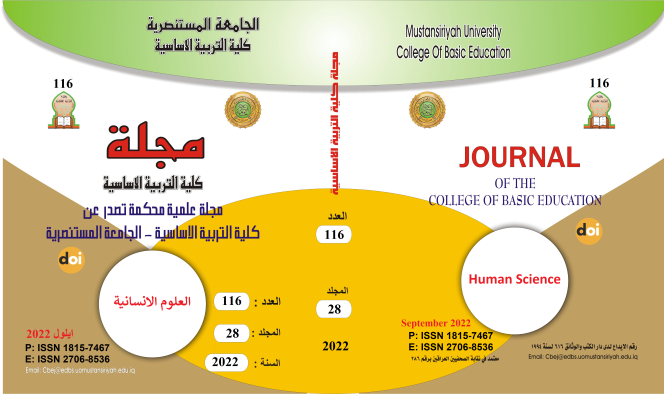Determine the Final Text of the Written Work Modern Exegetical Studies" The Source Hypothesis a Model
Main Article Content
Abstract
Modern interpretation raises the importance of determining the final text of the written work, as an exegetical method that contributes to determining the temporal regularity of the texts. In order to uncover the underlying sources; By focusing on three basic issues related to the internal consistency of the writings of the New Testament, the first relates to the similarity between the Synoptic Gospels that include the consistency and similarity of textual units, and the second relates to the issue of the priority of the Gospels specifically, and the third; It discusses the originality of the phrases that make up the evangelical texts .
The three models adopted in the frameworks of the explanatory hypothesis of the sources, unanimously agree on the importance of determining the results of modern studies in the nineteenth century AD. However, it did not succeed in defining a complete consensus in solving the issue of the second source after sayings and words, so the issues arising from historical events and textual narrations, such as the originality of phrases and utterances, remained an important element that pushes the method of final determinations of interpretation of the biblical texts, for what is known as diagnosing the chronological age of the oldest source in terms of the most recent in New Testament writings.
Article Details

This work is licensed under a Creative Commons Attribution-ShareAlike 4.0 International License.
